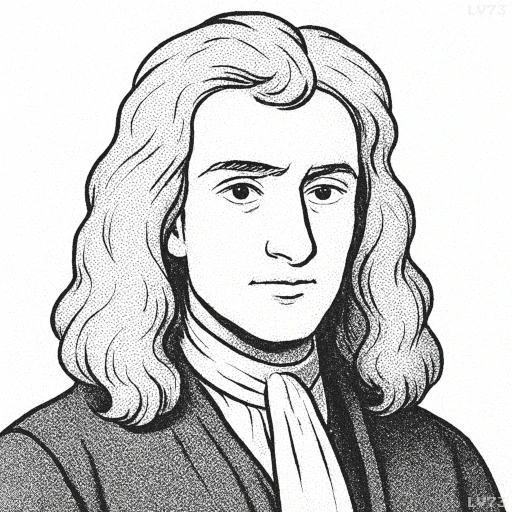“If I have done the public any service, it is due to my patient thought.”

- January 4, 1643 – March 31, 1727
- Born in England (UK)
- Natural philosopher, mathematician, physicist, astronomer, theologian
table of contents
Quote
“If I have done the public any service, it is due to my patient thought.”
Explanation
In this quote, Isaac Newton humbly acknowledges that any contributions he has made to science or society are the result of his dedication and persistent thought rather than any innate talent or external factors. Newton’s reference to “patient thought” reflects his ability to engage deeply with complex problems and spend long periods contemplating solutions. He recognized that significant breakthroughs in science do not come easily or quickly, but require long hours of careful reflection, observation, and calculation. This was especially true for Newton, whose work in developing the laws of motion, universal gravitation, and calculus was built upon years of careful study and mathematical reasoning.
Newton’s humility in this statement contrasts with the vast impact he had on the development of modern science. While he is often seen as a genius whose insights revolutionized physics and mathematics, he attributed his success to his ability to focus and think critically over extended periods of time, rather than relying on sudden inspiration. This view aligns with his approach to scientific discovery, where he believed in the importance of empirical evidence and logical reasoning as the path to understanding the laws governing nature.
In modern times, Newton’s perspective remains relevant in scientific and intellectual work. Patience and dedication are still recognized as essential qualities for anyone pursuing complex problems or seeking to make lasting contributions to their field. Newton’s recognition that thoughtfulness, persistence, and focused effort lead to meaningful discoveries is a reminder that even the most groundbreaking ideas often come from careful and sustained work, rather than from instantaneous brilliance. His words continue to inspire those in science, philosophy, and other fields to value patient, deliberate thought in their pursuit of knowledge.
Would you like to share your impressions or related stories about this quote in the comments section?

